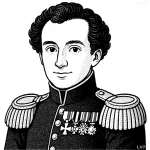“Every art and every inquiry, and similarly every action and choice, is thought to aim at some good; and for this reason the good has rightly been declared to be that at which all things aim.”

- 384 BC – 322 BC
- Originating from Macedonia in ancient Greece
- Philosopher and scientist, founder of the Lyceum academy
table of contents
Quote
“Every art and every inquiry, and similarly every action and choice, is thought to aim at some good; and for this reason the good has rightly been declared to be that at which all things aim.”
Explanation
In this quote, Aristotle articulates his belief that all human actions, whether through art, inquiry, or decision-making, are motivated by the pursuit of some form of good. He argues that the underlying purpose of any activity is to achieve a positive outcome, whether it is practical, intellectual, or ethical in nature. This means that every goal, from the simplest daily tasks to the grandest intellectual endeavors, is oriented towards some idea of good, whether it be happiness, knowledge, virtue, or material success. As such, the good becomes the ultimate end or purpose that guides all of human life, and it is rightly considered the aim of all human actions and choices.
This concept forms the foundation of Aristotle’s idea of teleology, the belief that everything has a purpose or end goal. In his broader philosophy, he argues that humans, as rational beings, are driven to act toward their highest good, which he identifies with eudaimonia (often translated as flourishing or well-being). This idea is still widely applicable today, as we see people striving in various fields, whether in science, business, art, or personal development, with the intent to achieve good or some form of benefit.
For example, a scientist conducts research with the aim of advancing knowledge or contributing to human well-being; a musician practices with the goal of creating beauty or inspiring others; and an individual makes ethical decisions to live a virtuous life. Aristotle’s quote encourages us to reflect on the purpose behind our actions and choices, recognizing that even mundane tasks, when directed towards a good end, contribute to the greater good. It reminds us that our pursuit of goodness is what drives our decisions and aspirations, shaping the direction of our lives.
Would you like to share your impressions or related stories about this quote in the comments section?





